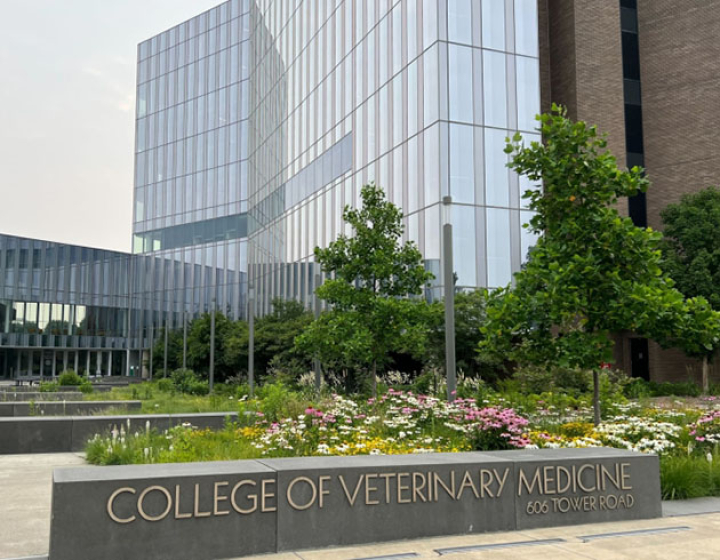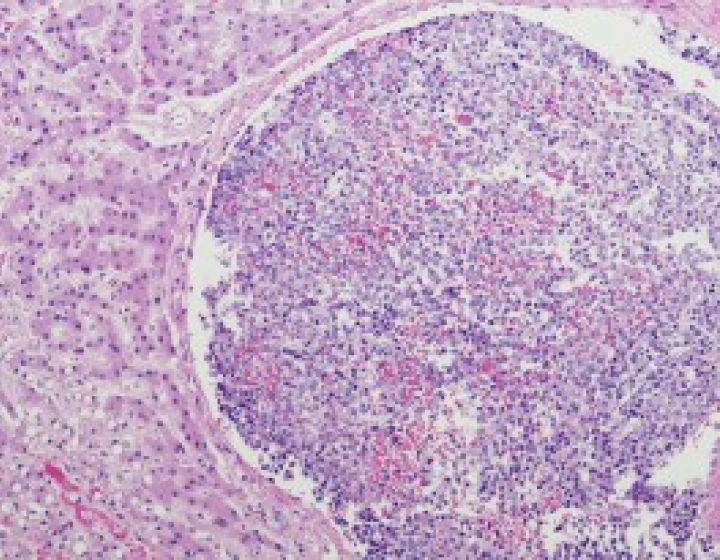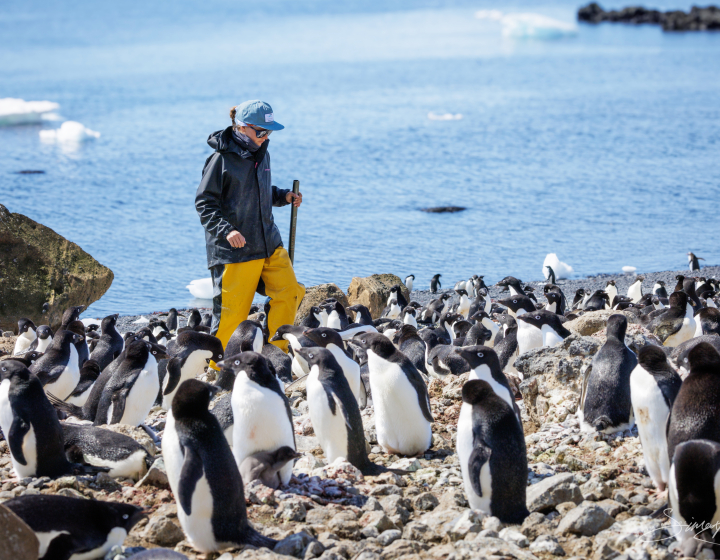College researchers collaborate and navigate uncertainty during COVID-19 pandemic
Research activities at the College of Veterinary Medicine (CVM) have seen extreme changes in day-to-day activities and creative partnerships to help speed discoveries around defeating the coronavirus. Associate dean of research and graduate education, Dr. Robert Weiss, is shepherding his division of the college community through the pandemic — finding both struggles and silver linings along the way.
“Everything is very different now,” said Weiss. “Our research community has been supporting each other through this by keeping in touch, both in groups and individually. We’re trying to stay cohesive, and to encourage everyone to take care of themselves right now.”
Lab life on pause
All members of the college’s research groups are navigating both professional and personal challenges during the pandemic.
“Perhaps one of the biggest challenges is the loss of interactions between team members,” said Weiss. “That’s such a big part of science — that bouncing ideas off of each other and brainstorming — it’s just harder to do when you’re physically separated from each other.”
Weiss notes that, for faculty scientists, much of what they do can often translate well to working from home, such as the extensive writing, reading and data analysis that running a research group requires. For other members of the lab, however, it can be more difficult. “It has been a complete change for many of our graduate students and other members of the research team who do the majority of their work in the lab,” said Weiss.
While Ph.D. students that are close to the end of their training may be able to wrap up their projects and continue moving toward completing their degree, those who are in the middle of their training are most impacted. “Students are worrying. There may be delays in their academic program — it all depends on how long this shutdown lasts,” Weiss said. “It’s an unusually stressful situation. This is adding to the normal stresses of being a graduate student and getting a degree. Now there’s the added concerns around safety and sickness for themselves and loved ones.”
To combat these stresses, CVM faculty advisors and lab heads are doing their best to keep their groups cohesive and in contact over Zoom. Leaders at the college, Cornell and beyond are also trying to help graduate students as much as they can. “There’s an understanding both from our administrations and also from funding agencies, that we have to be flexible,” said Weiss. “This is unprecedented, and we all know we have to help each other get through it.”
Shutting down or ramping up
Currently, all research at CVM is divided into three categories, Weiss explained. Labs completely on pause, with no employees allowed in, are ones that do not have animal models or other essential research activities and do not conduct research that could be used to fight coronavirus. Research groups that have ongoing experiments involving carefully bred genetic lines of animal models can use minimal staffing to continue the genetic work and avoid losing those animal lineages. Weiss’ lab, which works on cancer biology, falls into this second category. “The nature of our work involves some highly specialized strains of mice that we’ve engineered and spent a lot of time developing, so our time in the lab is devoted to maintaining those strains to avoid starting over,” Weiss said.
Finally, there are the labs that have the equipment or expertise to provide an all-hands-on-deck approach to fight COVID-19. “There’s a small number of labs that work in the coronavirus field that are working more intensively,” said Weiss. These lab groups include those of Dr. Gary Whittaker, professor of virology; Dr. Bettina Wagner, professor and chair of the dept. of population medicine and diagnostic sciences, Dr. Luis Schang, professor of chemical virology at the Baker Institute for Animal Health; Dr. Hector Aguilar-Carreno, associate professor of microbiology and immunology; Dr. Diego Diel, associate professor of population medicine and diagnostic sciences; and Colin Parrish, Ph.D. ’84, professor of virology, among others.
Even if some science labs have traditionally focused on other areas, many still have valuable expertise and equipment, such as Drs. Brian VanderVen and David Russell, both faculty in the Department of Microbiology and Immunology who work with highly pathogenic organisms like tuberculosis bacteria. That work must be done in very secure biosafety-level-3 (BSL-3) labs — facilities that are required to study COVID-19.
“The expertise of the people with BSL-3 experience has been really critical,” said Weiss. “Russel and VanderVen have been very generous, offering both their space and help with training to use it,” said Weiss. Along with their help, Paul Jennette, director of biocontainment operations who has extensive experience in managing BSL-3 facilities, has ensured that all new research is conducted safely and securely.
“Russell and VanderVen are now shifting all their attention to coronavirus, doing high-throughput drug screening that before was used for finding new tuberculosis drugs — now it’s used to screen for coronavirus therapeutics,” said Weiss.
While VanderVen and Russell conduct a sweeping search of millions of compounds to find a defense against COVID-19, other CVM groups are taking a more targeted approach. Dr. Richard Cerione, the Goldwin Smith Professor of Pharmacology and Chemical Biology in the Department of Molecular Medicine, who normally works on cancer cell signaling pathways, is now investigating how certain promising compounds may impact the coronavirus.
“It’s been really heartening to see how people from different scientific fields are coming and working together to solve this problem,” said Weiss. With any luck, these unusual partnerships may lead to answers that will bring an end to the COVID-19 pandemic.
-By Lauren Cahoon Roberts





